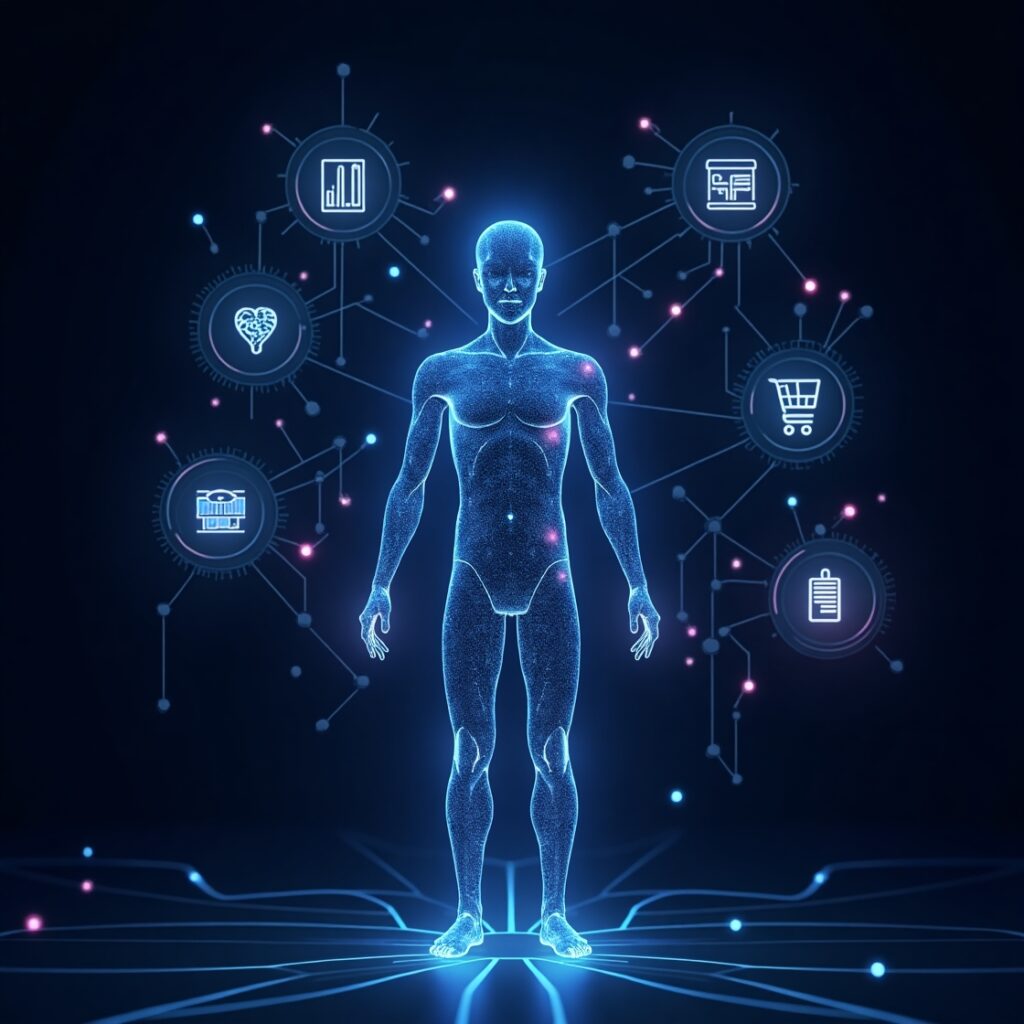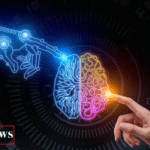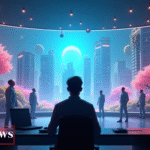AI is no longer just a buzzword—it’s woven into the fabric of daily life. From unlocking phones with facial recognition to setting reminders with voice assistants, AI is everywhere. Even behind the scenes, it powers the music playlists we enjoy and the products we discover online.
Yet, the true conversation about Artificial Intelligence is not just about today’s clever conveniences. The next decade is set to bring autonomous AI systems, stronger ethical frameworks, and massive transformations in the worlds of work, healthcare, education, and business. With this incredible promise also come urgent challenges—questions of bias, ethics, and governance.
This article explores the future of AI through three key lenses:
- Emerging trends: agentic AI, responsible AI, and content creation advancements
- Practical predictions for jobs, business, healthcare, retail, and education
- Major challenges and risks including ethics, data bias, industry disruption, and regulation
Emerging Trends Shaping the Future of Artificial Intelligence
Agentic AI: Moving Beyond Tools to Teammates
Traditional AI excels at responding to questions and generating text, but the future belongs to agentic AI—systems that can act with real autonomy. Imagine AI that doesn’t just suggest investment strategies but manages your portfolio in real time. Picture digital assistants scheduling meetings, sending emails, and completing tasks without direct supervision. Companies are already piloting autonomous agents to handle entire workflows, making AI a true digital colleague instead of just a passive tool.
Responsible AI: Building Trust Through Ethics
The power and reach of AI demand a more thoughtful approach. Responsible AI focuses on transparency, fairness, and accountability. Algorithms must clearly explain decisions and avoid perpetuating discrimination or bias. Governments and businesses are recognizing this need, with frameworks like the EU AI Act emerging as foundational efforts to regulate AI responsibly.
AI-Generated Content at Scale
AI-generated content is now part of marketing campaigns, journalism, and even entertainment. This shift raises new questions: How can originality be preserved? What safeguards are in place to prevent misinformation? Moving forward, trust and authenticity will be essential as AI’s role in media and creative fields grows.
Predictions: How AI Will Transform Key Industries
Jobs and the Workforce
AI is poised to automate repetitive work, such as data entry and reporting, but it doesn’t spell the end of human jobs. Instead, the demand for creativity, strategy, and emotional intelligence will climb. New job roles like “AI Workflow Designer” and “Prompt Engineer” are already emerging. Upskilling and retraining programs will be critical as traditional roles evolve. Those who adapt and learn AI will be best positioned for future career opportunities.
Business and Retail
Retail will benefit from hyper-personalization as AI analyzes buying habits both online and in-store. Customers can expect tailored recommendations and seamless experiences. Behind the scenes, supply chain automation and AI-driven forecasting will improve resilience and efficiency. Early adopters stand to gain a competitive advantage in a fast-changing market.
Healthcare
AI is already revolutionizing diagnostics, sometimes surpassing humans in speed and accuracy. The future includes predictive healthcare, with wearables capable of detecting illnesses before symptoms develop, and personalized medicine based on genetic and lifestyle data. Clinical trials may become faster and more cost-effective, with AI simulations driving medical research.
Education
AI-powered tutors are changing the education landscape, adapting lessons to each student’s pace and style. Automated grading frees teachers to focus on mentoring. As personalized learning becomes more widespread, AI has the potential to close educational gaps and improve access globally—provided it’s used responsibly.
Challenges and Risks Facing the Future of AI
Ethics and Data Bias
AI systems learn from massive data sets, raising concerns about reproducing bias. For example, facial recognition systems have been shown to misidentify people of certain skin tones, and hiring algorithms can overtly or subtly discriminate. Proactive bias mitigation and ongoing oversight are essential to ensure AI promotes equity rather than deepening divides.
Industry Disruption
AI will create new opportunities but also disrupt established industries. Customer service, administrative support, and even creative professions may shrink as automation rises. The key challenge is retraining displaced workers and ensuring that the benefits of AI are distributed fairly, not just among tech leaders.
Governance and Accountability
Technology moves faster than government regulation. While initiatives like the EU AI Act mark progress, global consensus remains elusive. Industry-led ethics standards may fill gaps, but questions about trust and effectiveness persist. Striking a careful balance between fostering innovation and preventing misuse will be crucial for policymakers and business leaders alike.
Also, you can read AI in Focus: Why August 2025 Was a Turning Point
Key Takeaways: What the Future Holds
- Agentic AI will emerge as autonomous digital teammates in homes and workplaces.
- Responsible AI is vital for promoting trust and widespread adoption.
- Job roles will shift, with creativity and strategic thinking growing in importance.
- Healthcare, retail, and education will be transformed by personalized, AI-driven experiences.
- Bias and effective governance will be ongoing challenges that demand constant attention.
Conclusion
The future of AI is both exciting and filled with uncertainty. We’re heading into an era where digital coworkers automate routine tasks, healthcare wearables predict illness before symptoms arise, and schools can adapt learning to every student. But with these advancements come risks—bias, misinformation, and industry shifts.
Ultimately, AI will not replace humans. Instead, those who embrace and thoughtfully deploy AI will lead the way in their fields. Our collective challenge is to guide AI’s rapid evolution, ensuring it becomes a force for greater trust, equity, and opportunity.
You can read 10 ChatGPT Prompts to Help You Crush Your Next Job Interview.



